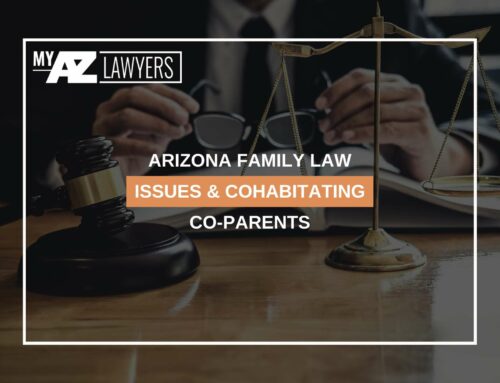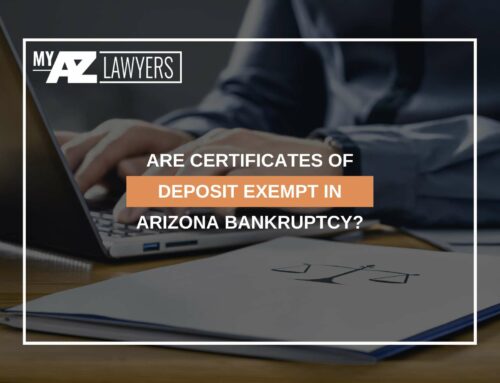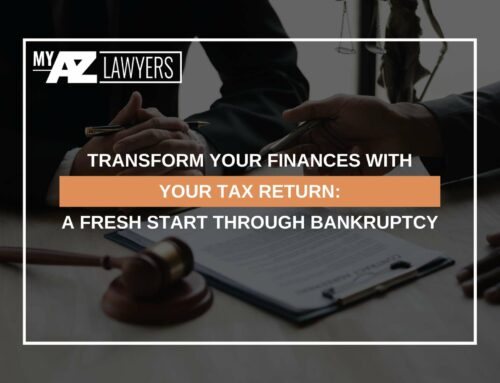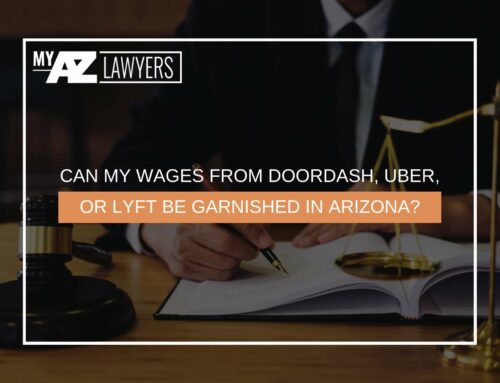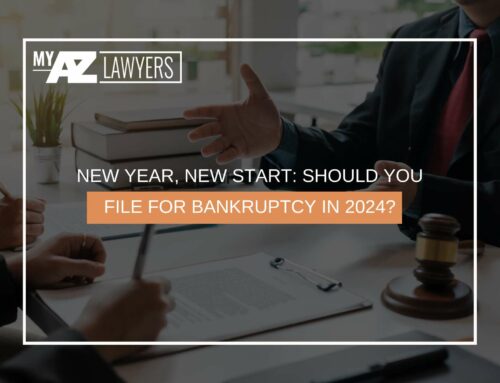Essential Distinctions Between a Student Loan Forgiveness & Discharge
Arizona Bankruptcy Attorneys Explain Student Loan Debt Relief Methods
Student loan debt is one of the biggest debts that people carry – and one of the biggest reasons they start thinking whether or not to file for bankruptcy. Unfortunately, it is very, very difficult to discharge student debt in bankruptcy. It is so difficult that most bankruptcy attorneys will tell you that it’s not possible. Instead, bankruptcy can be a tool for getting other debt relief so that you have the money needed to pay your student loans.
However, there are other ways that you may be able to relieve your burden for student loans. Student loan discharge eliminates the debt so you no longer have to pay it. Student loan forgiveness is a means of removing your obligation to pay the debt. Both require that you meet certain criteria. Here’s what you need to know:

Student Loan Discharge
There are few situations in which the government will agree to discharge your student loans. Your loans can be discharged if you die, but most people aren’t going to count on their own deaths for debt relief. However, if your spouse dies, know that you will be able to discharge the debt.
The government may also discharge student debt for:
-
Total & Permanent Disability
-
Identity Theft:
You will have to prove that someone has stolen your identity to open a line of credit in your name.
-
Fraudulent Misrepresentation:
You will have to prove that your school fraudulently signed your name to a loan application, misled you about the school or your career options after graduation, or failed to let you know about reimbursement money you were owed.
As you can see, the options for getting a student loan discharge are scarce, and the criteria are narrow. If you are simply looking to have your debt discharged because you are unable to pay it, you won’t be successful.
Student Loan Forgiveness
If you have worked in a certain field, you may be eligible to have your student loans forgiven after a certain time period. The government offers this benefit in exchange for needed service, such as teaching or other public service.
Two primary programs are available for student loan forgiveness: Public Service Loan Forgiveness and Teacher Loan Forgiveness. Under the Public Service Loan Forgiveness, you need to have worked in a public service position for at least 10 years and have made your student loan payments for the previous 120 months. Public service positions might include police officer, firefighter, social worker, doctor, or nurse.
Under the Teacher Loan Forgiveness program, you must have been a teacher in a qualifying school for five years, as well as meeting other criteria. If you qualify, you can have up to $17,500 of your debt forgiven. You may have much more debt than that, so this option does not offer total debt relief.
As you can, there are not many options for relieving yourself of your student loan burden. Even if you find yourself unable to pay your loans, the best the government will do is defer your payments or lower them to match your ability to pay. However, that only kicks your debt problem down the road. It doesn’t solve it. To get true debt relief, you will need to look at options like bankruptcy. Though you may not be able to discharge your student loan debt in bankruptcy, you can discharge other debts, and that can free up a lot of money to pay down your student debt (or just to manage your monthly payments). Talk to a bankruptcy attorney about how bankruptcy can help your particular financial circumstances.
Contact Experienced Bankruptcy Lawyers In Phoenix, AZ
Call My AZ Lawyers today to talk with a bankruptcy attorney about what kind of debt relief is possible for you through bankruptcy. Our attorneys represent clients in Chapter 7 bankruptcy, which offers a total discharge of unsecured debts, as well as Chapter 13 bankruptcy, which restructures a client’s debt into an affordable repayment plan. We can help you understand how each of these options can help you, as well as how they may impact assets such as your home or vehicle. Our goal is to help you get the maximum debt relief possible. Contact our bankruptcy law office today to talk with a bankruptcy lawyer and learn more. We serve clients throughout the Phoenix area.
Arizona Offices:
Mesa Location:
1731 West Baseline Rd., Suite #100
Mesa, AZ 85202
Office: (480) 448-9800
Email: info@myazlawyers.com
Website: https://myazlawyers.com/
Glendale Location:
20325 N 51st Avenue Suite #134, Building 5
Glendale, AZ 85308
Office: (602) 509-0955
Tucson Location:
2 East Congress St., Suite #900-6A
Tucson, AZ 85701
Office: (520) 441-1450
Avondale Location:
12725 W. Indian School Rd., Ste E, #101
Avondale, AZ 85392
Office: (623) 469-6603


